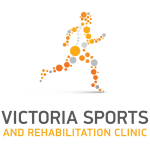There has been ongoing debate recently in the medical world about whether ACL surgery is in fact necessary for all patients that sustain an ACL tear. While reconstruction of an ACL tear used to be the most common and respected approach, many professionals are starting to question whether it is actually the best option? Reconstruction does not guarantee that athletic patients will have a successful return to sport and in fact re injury remains high. Statistics show that 20% of patients re injur their ACL graft or tear the opposite site upon return to sport!
Recently there was a systematic review and meta-analysis looking at the highest quality data that compared the effectiveness of the ACL surgical repair to rehabilitation alone following the ACL tear.
Three studies with nine separate study reports were included in the review with the average age of participants 29.5 and 93% injured their ACL during sporting activities. The study found that there was no statistically significant difference (research lingo for no actual measurable difference) between the surgical group and the rehabilitation group in regard to short, medium or long term follow ups. There were also no differences on Xray and imaging of knee Osteoarthritis. One study also included that early surgical intervention on the meniscus also had no effect on new meniscus damage.
There were some limitations of the study, which indicated that of course more research needs to be conducted, which is always thrown at the end of every paper! But with the research that has been completed, surgical intervention does not equate to increased range of motion, increased function, improved activity or decreases the risk of osteoarthritis, compared to rehabilitation.
Following specific rehabilitation can be very difficult for some patients, so for these it is clear that surgery could be advantageous, but the main thing to get out of this is that every patient should be offered choice. All patients should be explained that surgery isn’t the only answer. Surgery can be expensive, has risks and complications, and with the growing evidence- does not lead to better outcomes. Each individual should be educated to make their own decision, to what best suits them and their situation. This is where our job as Osteopaths comes in, we will always encourage and guide our patients to choose the best option that best meets their situation and preference and always be there to help educate!
